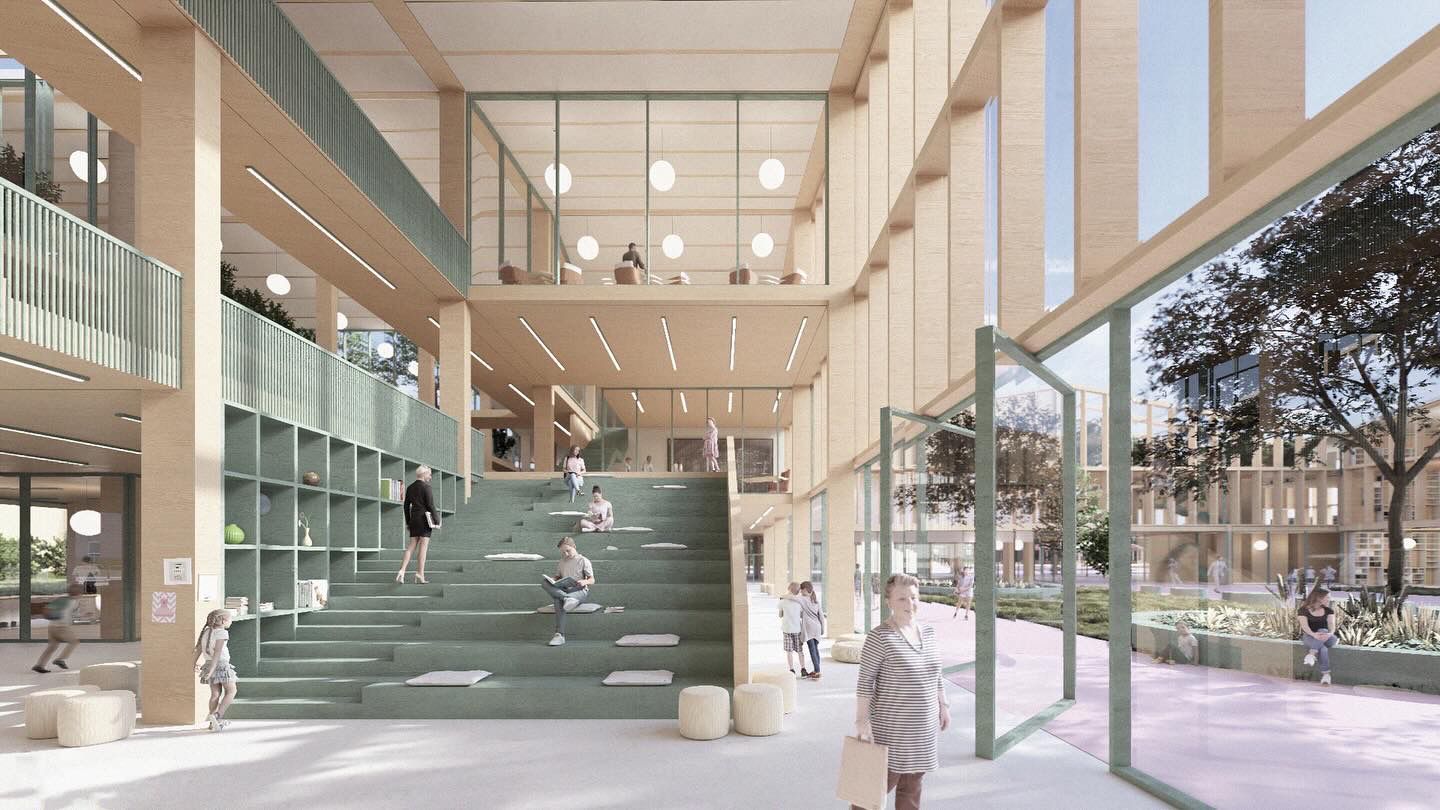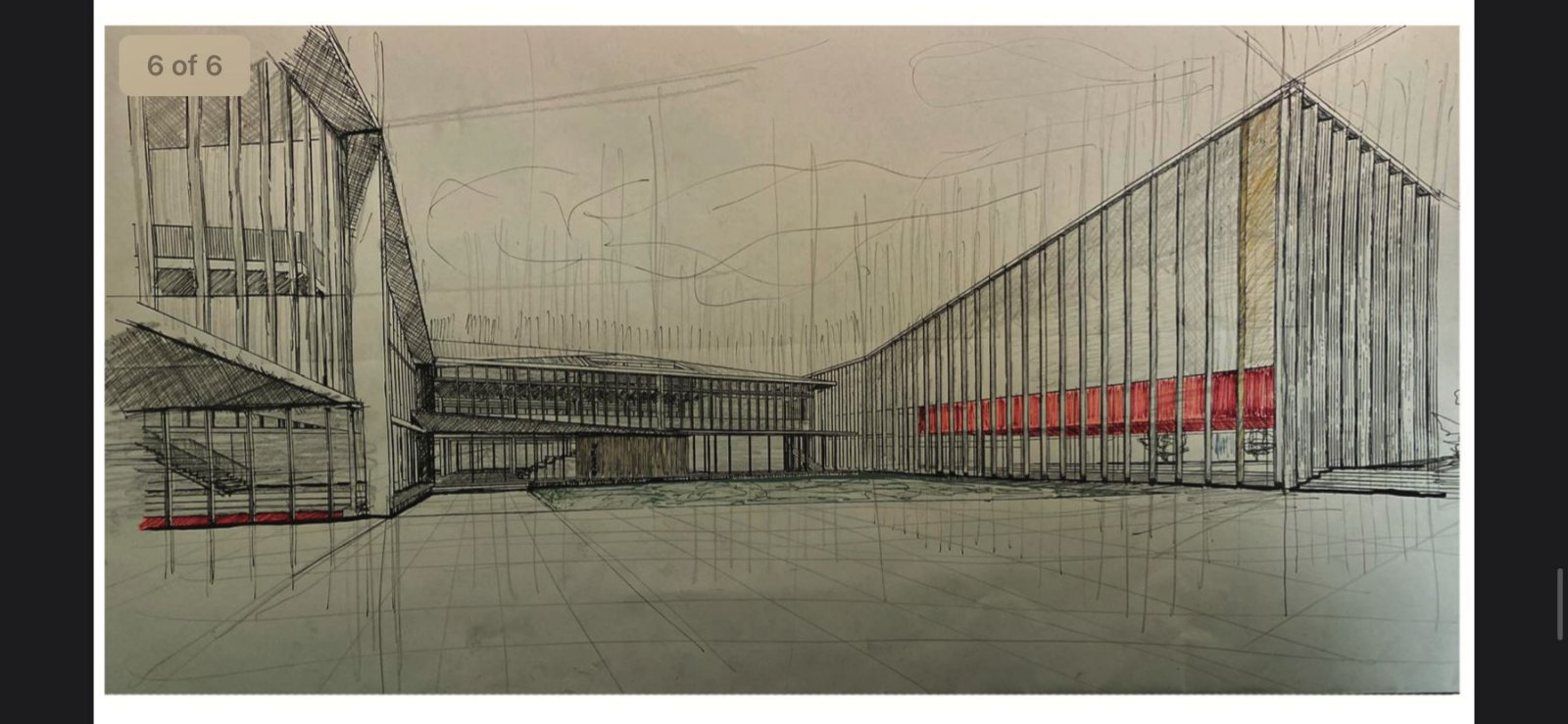Lendi Osmani Bojniku was born at a time when Kosovo was ravaged by war. 25 years on, as a student of Architecture, his project has been selected as the best in a hard fought competition to rebuild a war- destroyed school in Ukraine’s Kharkiv.
Debris dominates a site in Kharkiv, Ukraine where a school once stood. Students attended classes there until the day, in July 2022, when Russian shells fell mercilessly on the building. The area is now expected to be rebuilt according to the vision of a young architect from Kosovo.
Lendi Bojniku Osmani, a 25 year old architect from Prishtina, is part of the team which won first prize in an international competition for constructing a new school in the war-ravaged southeastern Ukrainian city of Kharkiv.
“We have won the tender for constructing a school in Ukraine unfortunately destroyed by the conflict there,” Bojniku Osmani told BIRN in an interview, speaking about the nearly 10 million Euro project.
Having graduated from the University of Prishtina’s Faculty of Architecture in 2021, Bojniku Osmani was looking for a topic for his master’s degree, which he is pursuing at the Polytechnic University of Torino, Italy.

Photo: Courtesy of Lendi Bojniku Osmani
The international competition of architecture design, organized by the Asian Institute of Low Carbon Design, AILCD, caught his attention. The young architect’s project proposal for AILCD also became his master’s thesis, allowing him to win the competition while continuing his graduate studies.
Bojniku Osmani decided to participate in the international competition of architecture, in collaboration with ‘2MIX architetti’, his professor Edoardo Bruno’s company. The competition’s organizers were looking for students and young architects such as Bojniku Osmani to redesign the destroyed school, thus addressing the problem of post-war urban planning in Kharkiv, Ukraine.
Bojniku Osmani started working on the project in October 2023.
“I had never before designed a school or a community centre” he said, explaining that first he had to conduct an elaborate research on “how to create a sustainable architecture,” work which included a review of the existing literature on reconstruction of destroyed facilities.
“Truly, I have designed this project by myself, with the help of colleagues who helped me in the last month,” he added.
One of the young architect’s major challenges was the lack of any blueprints or plans of the school which existed before the war. Bojniku Osmani had to invent creative solutions to overcome this obstacle.
“Some information was very confidential, and it was necessary to look online for some pictures, even from, let’s say, on Facebook, that people had posted. From there, I started rethinking. I have been very careful with honoring the collective memory by preserving the internal garden the school had,” he said.

Winning project for the constructing a new school in the war-ravaged southeastern Ukrainian city of Kharkiv. Photo: Courtesy of Lendi Bojniku Osmani
It was on February 24, 2024, the day when Ukraine was marking the second anniversary of being invaded by its neighbour, Russia, that Bojniku Osmani learned his project was selected as the winner of the competition.
The school in Kharkiv, known as Lyceum No.46, was destroyed on October 7, 2022, and had 1,328 students, 129 teachers and 49 classes.
Located on “Derzhavinska” Street, the school specialised in philology, biology, chemistry and mathematics education for first through eleventh grade students.
According to Bojniku Osmani, 50 well-known architectural services from across the world participated in the competition.
“I stayed up all night waiting for the results, but for a moment I couldn’t (stay awake)… The next morning, professor Bruno informed me that we had won first place,” he recalled.
This is not the first time that the 25-year old architect has won a major competition for his architecture work, but he maintains that the Ukrainian school is one of the most important because of his home country’s past.

Winning project for the constructing a new school in the war-ravaged southeastern Ukrainian city of Kharkiv. Photo: Courtesy of Lendi Bojniku Osmani
“It is not just about the construction of a school, it’s (about) giving back hope, dignity and a sense of normality for those affected by the conflict,”Bojniku Osmani says.
“I was born in the peak of the war in Kosovo, and I grew up with stories, confessions from familiars, friends, relatives. Those impacted deeply on my formation and understanding how war affects communities. Therefore, even the approach to the project has a deep sense of the importance of construction and recovering,” he concluded.





